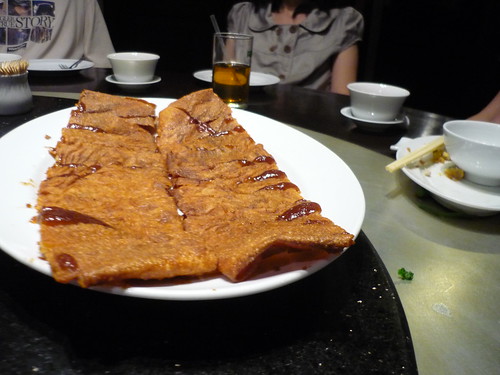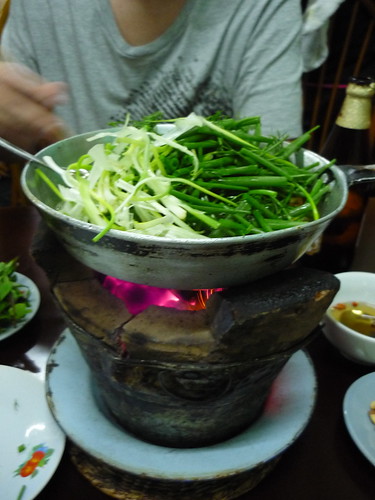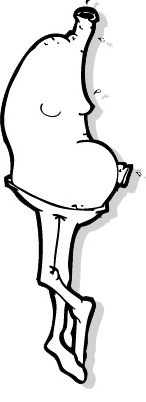
(Photo of sago & pandan jelly by Chotda via Flickr)
Michael Pollan can be so mawkish sometimes.
His selection of reader's self-prescribed food rules on the Times' site today is intended to show how families and cultures can provide collective wisdom that is more helpful than government nutrition guidelines.
I do admire his militancy, but the quotes listed there make me want to eat a huge spoonful of whiskey 'air' and vodka 'dust'. Pollan's idea of food wisdom is predicated on the idea that the past is better and food technology is bad. It's good that journalists like him are there to challenge the industry status quo, but right from the beginning, I've been uncomfortable with Pollan's premise that our parents (and grandparents) knew better than us what tastes good and is good for us.
My Dutch grandmother might've passed on some kick-ass junk food recipes (yeasted poffertje pancakes, buttery spiced spekulaas biscuits and deep-fried blueberry-studded olliebollen donuts) but most of the time she sips weak freeze-dried instant coffee or chicory root drinks and bland pea soups. Vegetable-wise, bitter sunlight-starved witlof makes an occasional appearance. Because she suffered deprivation during the war, moldy fruit has its blemishes cut out and is served good as new.
My other (NZ-born) grandmother definitely knows how to cook: she does a great line in chicken pies, porridge with cream, roasts, salads doused in french dressing and tasty little finger-sized crispy cheese toasts. None of it is very good for the waistline, as her own shapely figure attests.
To be fair, after ten years of suffering vegetarian grandchildren, she has learned how to make a tomato pasta that is fresh tasting if a little bit soggy. But it seems absurd to propose that I should look to these two lovable if domineering ladies for my own dietary advice.
Some of the most delicious cooking techniques may have been invented by someone's great-great-grandmother, but that doesn't mean that those recipes can't be modified or improved on.
Let's celebrate the whimsical advances of food-tech and the occasional convenience food - like Japanese curry in its preternaturally smooth chocolate-like blocks, and those freeze-dried egg-dashi soups which flower in the hot water like a mail-order sea monkey. OK, they involve a chemical- and energy-intensive food production process and far too much plastic packaging - but I promise to adopt three abandoned mongrels from a shelter and plant seven oak trees in penance for each bowlful.
Let's celebrate food that pretends to be something else. Like marzipan that's rolled into balls, dusted with chocolate powder 'dirt' and sold as tiny 'potatoes'. Or marzipan shaped as sunglasses, maybe - whatever floats your boat.
Here's to 'fake' vegetarian hotdogs – especially when cut up and sautéed with butter in a version of the classic Japanese kids dish of tomato ketchup rice. Heinz might be the devil, but why not dance with it sometimes, especially if it makes brown rice taste so kick-ass. Let's support the German organic-food industry, with its bizarre pink soy 'mortadella' luncheon slice, or vege wieners with their complicated list of ingredients. They're fake, and that's half the fun. They're as much of a food treasure as an old German grandma's knödel dumplings.
OK, I'm only being half-serious, but I wish Pollan would be too. Of course, in the mainstream media you need to stay 'on message' to make an impact, and I'm sure that behind closed doors Pollan eats food with more than the five ingredients he has famously prescribed. Maybe he even gives his home-baked biscuits cute and catchy names like 'coco loco bong bongs' or 'oh ho ho hot-crullers'.
Still, I think to balance this stultifying wholesomeness, we should advance a complimentary set of Dada food rules.
"Eat only red food before 10am"
"Lie down for ten minutes following ice cream"
"Make only recipes from time zones where it is currently 7pm"
"Every time you eat a pot roast, wear black and burn a stick of incense"






















